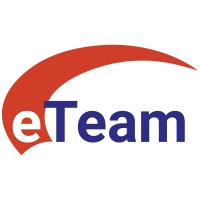Description
We are seeking a highly motivated and experienced Azure Platform Administrator to join our dynamic IT team.
As an Azure Platform Administrator, you will be responsible for the implementation, management, and maintenance of our Microsoft Azure cloud infrastructure.
You will play a crucial role in ensuring the reliability, security, and performance of our Azure environment, supporting our business-critical applications and services.
You will work closely with other IT teams, including development, security, and networking, to deliver robust and scalable cloud solutions.
Responsibilities:
Azure Infrastructure Management: Provisioning, configuring, and maintaining Azure resources such as Virtual Machines, Storage Accounts, Virtual Networks, Azure Active Directory, and other platform services.
Platform Monitoring and Optimization: Implementing and managing monitoring solutions to track the health, performance, and availability of Azure services.
Identifying and implementing optimizations for cost efficiency and performance improvements.
Security and Compliance: Implementing and enforcing security policies and best practices within the Azure environment. Managing identity and access controls, ensuring compliance with relevant industry standards and regulations.
Automation and Scripting: Developing and maintaining automation scripts using tools like PowerShell, Azure CLI, or Infrastructure-as-Code (IaC) tools (e.g., ARM templates, Terraform, Bicep) to streamline operations and deployments.
Backup and Recovery: Implementing and managing backup and disaster recovery solutions to ensure business continuity.
Network Configuration: Configuring and troubleshooting Azure networking components, including virtual networks, subnets, network security groups, VPNs, and load balancers.
Incident Management: Responding to and resolving incidents related to the Azure platform, performing root cause analysis, and implementing preventative measures.
Capacity Planning: Monitoring resource utilization and planning for future capacity needs.
Collaboration and Communication: Working effectively with cross-functional teams to understand requirements and provide technical guidance on Azure services. Maintaining clear and concise documentation of Azure environments and procedures.
Staying Current: Keeping up-to-date with the latest Azure services, features, and best practices. Evaluating and recommending new technologies to improve our Azure platform.
Required Technical Skill Sets:
Deep Understanding of Azure Services: Comprehensive knowledge of core Azure services, including:
Compute: Virtual Machines, App Services, Azure Kubernetes Service (AKS), Azure Functions.
Storage: Blob Storage, Azure Files, Disk Storage, Azure Data Lake Storage.
Networking: Virtual Networks, Subnets, Network Security Groups (NSGs), Azure Firewall, Azure DNS, Load Balancer, Application Gateway, VPN Gateway, ExpressRoute.
Identity and Access Management: Azure Active Directory (Azure AD), Role-Based Access Control (RBAC), Conditional Access, Managed Identities.
Data Services: Azure SQL Database, Azure Cosmos DB, Azure Database for PostgreSQL/MySQL.
Monitoring and Logging: Azure Monitor, Log Analytics, Azure Alerts, Azure Service Health.
Automation and Infrastructure as Code (IaC): Azure Resource Manager (ARM) templates, PowerShell, Azure CLI, and experience with at least one IaC tool such as Terraform or Bicep.
Security: Azure Security Center/Microsoft Defender for Cloud, Azure Key Vault, Azure Policy.
Backup and Recovery: Azure Backup, Azure Site Recovery.
Scripting and Automation: Proficiency in scripting languages such as PowerShell and Azure CLI for automating tasks and managing Azure resources.
Networking Fundamentals: Solid understanding of networking concepts, including TCP/IP, DNS, routing, firewalls, and VPNs.
Security Best Practices: Knowledge of cloud security principles and best practices, including identity management, network security, data encryption, and compliance.
Troubleshooting Skills: Strong analytical and problem-solving skills to diagnose and resolve issues within the Azure environment.
Understanding of Cloud Architectures: Familiarity with different cloud deployment models (IaaS, PaaS, SaaS) and architectural best practices for building scalable and resilient cloud solutions.
Experience with Hybrid Environments (Preferred): Knowledge of integrating on-premises infrastructure with Azure using technologies like VPN Gateway or ExpressRoute.
Knowledge of DevOps Practices (Beneficial): Familiarity with CI/CD pipelines and tools like Azure DevOps or GitHub Actions.
Relevant Certifications (Beneficial): Microsoft Certified: Azure Administrator Associate (AZ-104) or other relevant Azure certifications
Key Skills
Education
Any Gradute
- Posted On: 2 days Ago
- Experience: 5+ years of experience
- Openings: 1
- Category: Azure Platform Admin
- Tenure: Contract - Corp-to-Corp Position

